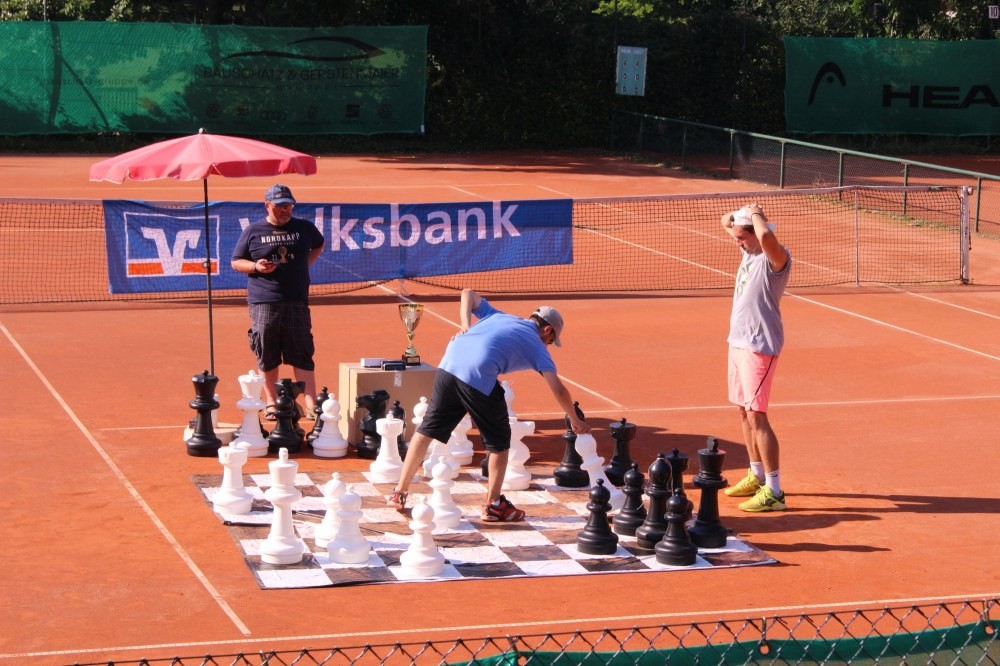As some of you might know, I used to be a competitive chess player. So I asked myself the question, what can tennis players learn from chess?
I’ve talked about my chess background in other videos, and it seems like quite a few viewers also enjoy playing chess. There is even a tennis-chess world championship (not sure if it’s still going).
So I thought I’d make a video about what you can learn from chess and implement into your tennis.
Anticipating your opponent’s moves/shots.
Chess is all about anticipating and preventing your opponent’s plans. The same goes for tennis. If you know your opponent, it’s easier to know how they play, what style they play, or what shots they tend to go for. Figuring out your opponent’s plans and where he intends to hit the shot is one of the keys to winning the match.
One of the ways you can take this idea into your own matches is to work on watching your opponent. That is why I always recommend recording your sessions. Suddenly you have footage to go through to analyze how points are played out and see if there are any patterns you need to change or take advantage of more.
Analyzing your and your opponent’s games/matches.
Top players watch their matches and their opponents to study the patterns, strengths, and weaknesses. In higher levels of chess, you have a massive database of games to work with where you can search for your opponent’s games and figure out what they do. Understanding yourself and your game and countering your opponent’s game will significantly improve your match results.
Playing with a clear strategy.
Chess is all about strategy. You need to figure out the right plans and implement them while preventing your opponent’s plans. The same goes for tennis. Let’s say you know your opponent has a weak backhand. This will be the point of your attack. But perhaps it’s not enough to just hit as many balls as possible on their backhand wing. Maybe you need to stretch them out on that wing with a wide ball or focus on getting more spin on those shots to make the ball kick up higher. Maybe your opponent struggles the most with a short chip backhand that they need to run towards and “dig up”?
Adapting to your opponent
Let’s say you start with this plan, and it’s working well. This doesn’t mean the match is won. Your opponent will likely figure out what is happening and find a way to counter your plan. If you’re attacking the backhand, he might protect it by positioning himself so that he can run around it and hit a forehand. He might also be attempting to serve and volley to break your rhythm and the possibility to implement the plan.
This means you need to adapt and figure out a new plan to counter your opponent. Take some time in between points to calm yourself down and try to analyze the situation. What is happening in the match, and do you need to change anything to get the win?
Taking time to think
Chess players like to think. Tennis players could sometimes use more of that. Don’t rush your points! Take some time to understand what is happening in the match. Calm your mind in between points and games and try to understand what is happening in the match. I think we have all played matches where we ask ourselves afterward: What happened? Being mindful of trends and patterns in the match will help a lot.
As you can see, there are plenty of points that tennis players can learn and implement from chess to be more successful in their tennis matches. It’s all about keeping a clear head, understanding the patterns of a match, implementing your strategy while preventing your opponents, and being able to analyze and understand your game as well as other players.
















